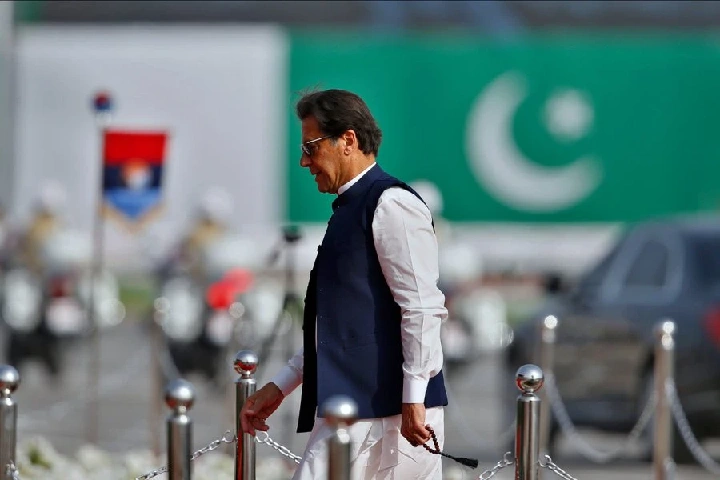After tabling a no-confidence motion, the opposition, now short of single digit numbers, is closing in to topple Prime Minister Imran Khan.
The arithmetic to oust the mercurial Khan is simple. The opposition needs to muster the magic number of 172 lawmakers to oust Khan.
After the decision of Shahzain Bugti of the Jamhoori Watan Party to step out of the ruling coalition on Sunday, treasury members have been slashed to 178 in the 342-member lower house of the parliament. With that the opposition has 163 in the bag, only 9 shorts of the required numbers.
Later on, Monday, the Balochistan Awami Party (BAP), an ally of the ruling Pakistan-Tehreek-e-Insaf (PTI) Party announced that it was joining the opposition in the no-confidence motion against the premier.
Khalid Magsi’s parliamentary leader of BAP made the dramatic announcement of ditching the ruling coalition in the National Assembly at a joint press conference accompanied by heavyweights in the Pakistani political spectrum. The big names included opposition leader in the National Assembly and President PML-N Shehbaz Sharif, former President Asif Ali Zardari, Chairman PPP Bilawal Bhutto Zardari, President PDM and Chief of JUIF Maulana Fazlur Rehman and President BNP-Mengal Sardar Akhtar Mengal.
Out of five, four BAP lawmakers, including Khalid Magsi, Israr Tareen, Ehsanullah Reki and Rubina Irfan declared they were joining the opposition ranks. That would mean that only five more parliamentarians need to switch sides to bid farewell to the angry Khan.
Recognising the decisive role of the Baloch’s, opposition leader Shehbaz Sharif said: Opposition leader in the National Assembly Shehbaz Sharif promised that after the success of the no-confidence motion the new government would work for solving Balochistan’s problems. “We will fully cooperate with BAP for solving problems in Balochistan. We will work sincerely for the people of Balochistan,” he pledged.
With Khan’s star waning, apart from the Balochs, the Sharifs could stage a full comeback. Shehbaz Sharif, as the leader is likely to become the Prime Minister in case the no-confidence motion against Khan is passed. That could open the door for Maryam Nawaz, a rising star on the Pakistani political horizon to enter the corridors of power. The stars would be then well aligned for the big Sharif—Nawaz Sharif—to make a triumphant return from forced exile in London, provided the Sharifs manage to forge a mutually acceptable understanding with the powerful army Chief, Qamar Javed Bajwa.
Prime Minister Khan apparently blew his chances of dissolving the house with a call for fresh elections. But this would have been possible only if he had made his move for dissolution before the no-confidence motion by Shehbaz Sharif was tabled in the National Assembly on Monday. Now that the no-confidence motion is taking its own course, with proceedings set to begin on March 31, Khan has lost his opportunity of going directly to the people for an endorsement.
The opposition has already sensed Shehbaz Sharif’s ascendancy. During an opposition parliamentary meeting ahead of the tabling of the no-confidence resolution, former President Zardari addressed Sharif as “Prime Minister”, The News International reported.

